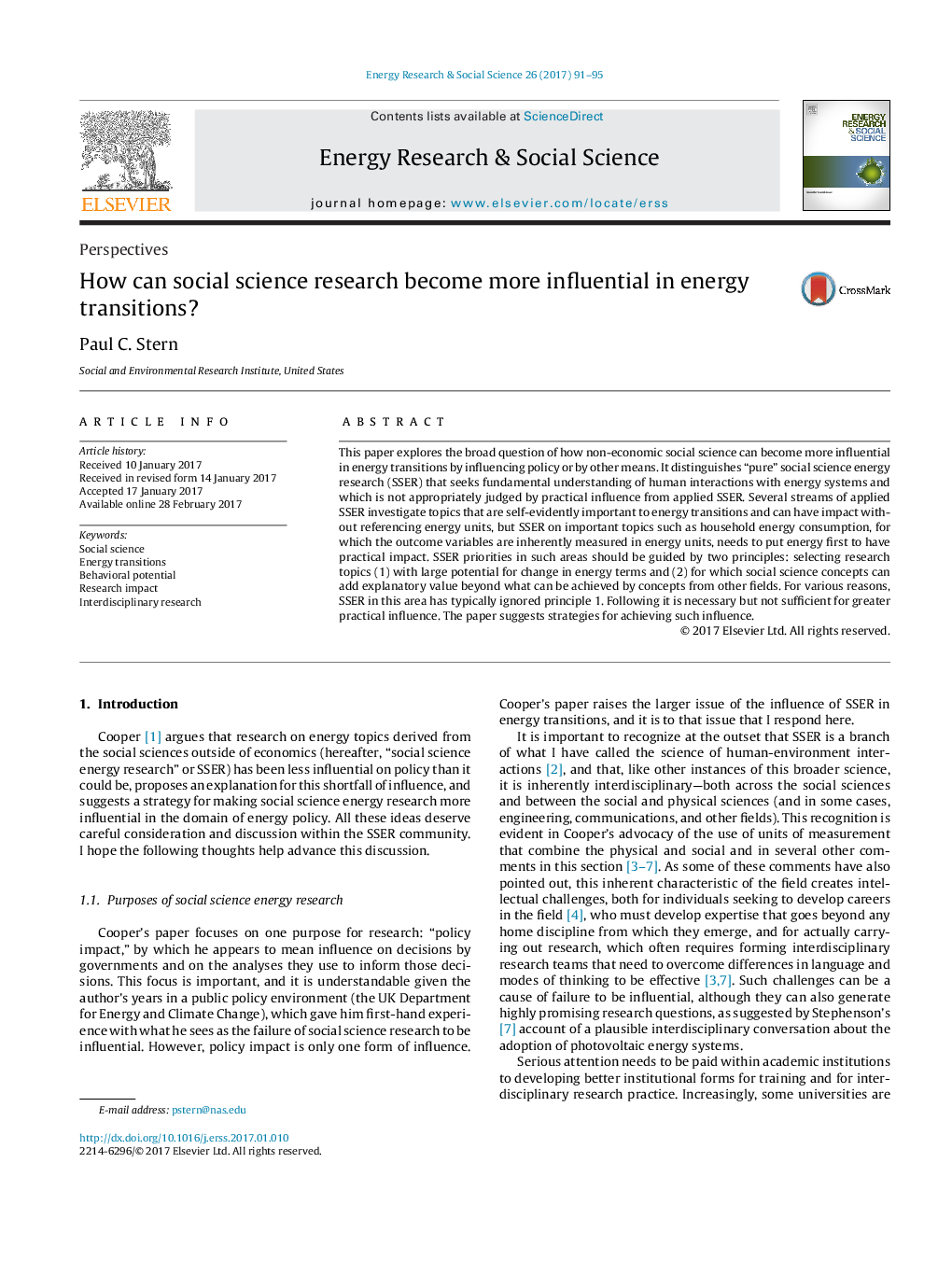| Article ID | Journal | Published Year | Pages | File Type |
|---|---|---|---|---|
| 6464050 | Energy Research & Social Science | 2017 | 5 Pages |
This paper explores the broad question of how non-economic social science can become more influential in energy transitions by influencing policy or by other means. It distinguishes “pure” social science energy research (SSER) that seeks fundamental understanding of human interactions with energy systems and which is not appropriately judged by practical influence from applied SSER. Several streams of applied SSER investigate topics that are self-evidently important to energy transitions and can have impact without referencing energy units, but SSER on important topics such as household energy consumption, for which the outcome variables are inherently measured in energy units, needs to put energy first to have practical impact. SSER priorities in such areas should be guided by two principles: selecting research topics (1) with large potential for change in energy terms and (2) for which social science concepts can add explanatory value beyond what can be achieved by concepts from other fields. For various reasons, SSER in this area has typically ignored principle 1. Following it is necessary but not sufficient for greater practical influence. The paper suggests strategies for achieving such influence.
